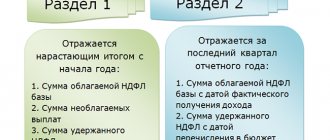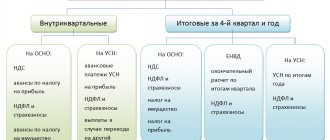Value added tax (VAT) is a type of indirect tax levied by the government. It refers to a certain share of the cost of goods and services, paid in the form of a fee by an organization or entrepreneur to the state budget. We will talk in detail about VAT in Kazakhstan, its rate for 2021, objects and other intricacies of working with this tax in the following sections of the article.
Who should pay VAT in 2021 in Kazakhstan
According to the legislation of the state of Kazakhstan, persons liable for VAT payments in the current year are:
- engaged in individual entrepreneurial activities;
- legal entity (except for government agencies and organizations);
- non-residents, that is, persons (organizations) not registered and not residing in the Kazakh state, but carrying out commerce within its borders and having branches and offices operating on a permanent basis in the country;
- branches and divisions of legal entities recognized as independent taxpayers and obligated to pay this type of payment.
When importing a product, VAT is paid by organizations or individual entrepreneurs that are directly involved in import supplies on the territory of the Kazakh state in strict accordance with the provisions of customs law.
Who does not have the right to choose a special regime?
Citizens conducting such types of business in Kazakhstan as:
- accounting and auditing;
- sale of fuel oil, diesel fuel and gasoline;
- production of excisable products;
- storage and wholesale sale of excisable products;
- use of the bowels of the earth;
- provision of consulting services;
- provision of insurance, financial and intermediary services;
- provision of services in the field of justice, justice and law;
- procurement, processing and storage of waste ferrous and non-ferrous metals, as well as scrap;
- reception from the population and independent collection of glass containers;
- holding non-state lotteries.
Learn more about tax innovations in the video below.
In addition to the listed categories of individual entrepreneurs, taxpayers whose business operates on the territory of several settlements or have other structural divisions do not have the right to use a special tax regime. And also does not have the right to apply the special regime for individual entrepreneurs whose activities are carried out on the basis of agency agreements.
Find out how to apply for a residence permit and obtain permanent residence in Kazakhstan here.
Objects of taxation
According to regulatory documentation, the objects of this type of tax payment are:
- import - that is, products imported or already imported into the territorial limits of the country and subject to the declaration procedure in accordance with the requirements of customs law;
- turnover – that is, the amount received by the person, the payer, during the sale of collection objects in Kazakhstan. In this paragraph, the following explanation must be given: if a tax resident received collection objects from a non-resident who is not included in the category of persons liable to pay VAT within the Kazakh state, then the tax amount will be obliged to be paid by the person who is the recipient of the VAT objects.
VAT 2021 in the Russian Federation:
The VAT rate in Russia can be of several types.
- 18% - this rate is used in all cases that are not exceptional.
- 10% - this rate must be paid for products of a certain category. This, for example, includes food, children's products, books, printing, and products used in medicine.
- 0% - the rate is used for export, transit, as well as for passenger transportation if the point of departure or destination is outside the country.
For Kazakh entrepreneurs exporting goods to the territory of the Russian Federation, it is possible to apply a 0% rate if they have the following documents:
- agreement with a counterparty in Russia;
- statement (list of statements) on the import of products into Russia and payment of indirect taxes;
- transport documents confirming the transportation of goods to the territory of Russia.
It is important to note that all documents must be submitted to the tax service no later than 180 calendar days, which are counted from the day of shipment.
Collection benefits for 2021
An organization, individual entrepreneur or other person may not register with the inspection authorities for state tax under the following circumstances, if the turnover of goods and services during the accounting period (the duration of the period is no more than 365 days) did not exceed the minimum turnover rate. The minimum turnover is determined by the monthly calculation index of thirty thousand times.
Attention! Data on MCI changes, and the exact value of the indicator can be found on the official resource of the Tax Service of Kazakhstan.
Basic taxes for individuals
For ordinary people, the list of tax deductions is much smaller compared to entrepreneurs. However, they are obliged to make all payments on time and ensure that there is no debt. Delays will lead to an increase in the load and the accrual of penalties.
Taxes for individuals are represented by several main categories of deductions.
Individual income tax
An analogue of the Russian personal income tax is paid by all persons carrying out labor activities on the territory of the Republic (including non-residents, provided that they have an official place of work and have provided a declaration). Payment can be divided into 3 categories:
- deductions from income received under the terms of employment agreements;
- dividend payments;
- deductions received from self-employed persons who provided a certificate.
Income tax in Kazakhstan is 10% (withholding) or 5% (dividends). Submission of documentation is carried out within the established time frame.
Transport tax
If a citizen owns a vehicle of any type (aircraft, ship, car or truck, train, etc.), he is required to pay an annual transport tax.
When calculating payments, the following parameters are taken into account:
- type of transport;
- engine size (passenger car);
- load capacity;
- seats;
- power of air, water and rail transport.
The level of minimum wage is also taken into account.
Land tax
Paid by citizens who own land plots. If the plot is used for farming, the rate will depend on the area of the plot:
- 20 tenge per hundred square meters (area less than 0.5 hectares);
- 100 tenge per hundred square meters (over 0.5 hectares).
The regional coefficient is also taken into account, which currently amounts to (per 1 sq. m):
- 0.96 tenge – Almaty and Astana;
- 0.58 tenge – large cities;
- 0.39 tenge – urban areas of Akmola and Almaty regions;
- 0.39 tenge – settlements of regional significance;
- 0.19 tenge – regional centers;
- 0.13 tenge – town.
The lowest figure is in rural areas, it is 0.09 tenge.
Property tax for individuals in Kazakhstan
Assigned to all persons who own real estate (apartment, house, dacha, etc.). The specific amount to be paid is determined by government agencies, which enter the required payment into the housing and communal services payment receipt once a year. If a single receipt is not used, owners are required to personally visit the state authorized body and provide documentation regarding their property. They make an individual calculation, which can be paid on the spot.
When calculating, they are guided by a number of indicators, including the total area of the object, usable area, physical and functional wear and tear, design indicator and zoning coefficient. The last parameter is fixed, and the cost for 1 square of housing is:
- 60 thousand tenge – Astana and Almaty;
- 36 thousand tenge – other large settlements;
- 12 thousand tenge – regional-type cities;
- 6 thousand tenge – regional centers;
- 4.2 thousand tenge – town.
Rural settlements also have the lowest coefficient – 2.7 thousand tenge.
Registration regulations
It is necessary to register for this type of tax collection with the fiscal service when the minimum turnover is exceeded. The registration procedure is carried out in the subsequent reporting period, which will occur after the exceeded amount of the minimum financial turnover is received. The taxpayer is given exactly fifteen days to contact the fiscal accounting authorities. You cannot violate these deadlines; severe fines may follow.
An individual or legal entity who currently has no obligations to pay VAT, but intends to sell goods or provide services subject to this type of tax, should also write a corresponding application to the inspection. And again - only with an increase in the minimum financial turnover.
Conditions for their use
Certain types of tax regimes require certain circumstances to be implemented. The legislator establishes a number of restrictive conditions for the use of a specific regime.
| Patent | Here the conditions of application are considered to be the following:
|
| "Simplified" | The legislation establishes the following features of the use of the mechanism:
|
| Fixed deduction | Here the grounds are somewhat different from other modes:
|
Restrictions are set for certain types of activities. Entrepreneurs may use exclusively the general procedure or other regimes approved by law:
- work with excisable commercial products;
- lotteries and drawings;
- procurement and reception of glass, paper, ferrous (non-ferrous) metal;
- consulting services in the areas of accounting, auditing, financial, insurance and intermediary sectors.
This category also includes jurisprudence, advocacy and financial leasing.
Value added tax rates in Kazakhstan in 2021
VAT has clearly defined rates:
- for taxable imports and turnover, the tax rate on added value is 12%;
- for export (except for the export of scrap metal) the interest rate is zero. There will also be a zero rate when performing work or supplying goods related to international transport.
There is also a turnover category that is exempt from paying the value added fee. Such turnover may include financial services, leasing of funds or property, investments in authorized capital, work in the field of geological exploration, import of currency, medicines, rent or sublease of a residential building (or part thereof). A complete list of financial transactions exempt from VAT can be found on the website of the Tax Service of Kazakhstan.
Taxpayer Responsibilities
Taxpayer responsibilities include:
- registration with the tax office;
- informing employees of government agencies about the peculiarities of doing business;
- providing up-to-date, truthful information regarding all aspects related to entrepreneurship;
- maintaining tax records in accordance with the principles and rules of a particular regime;
- calculation of tax fees;
- making transfers of payments to the budget with a focus on specific time periods designated at the highest state level;
- preparation of tax reports, provision of documents upon request.
Important! The list of responsibilities may be supplemented depending on the type of activity and the applicable tax regime.
VAT reporting period
The reporting period for VAT is a quarter. In order to correctly prepare reports for the tax service, you need to clearly know the cases in which VAT is taken as a credit, and in which situations the tax will not be taken into account.
The payer has the right to offset VAT if goods, services, work or fixed assets were (or will be used) in taxable turnover, as well as if the following conditions are met:
- the recipient of goods, works or services is officially a tax payer on the date of issuance of invoices;
- the supplier of goods, works or services has issued invoices;
- if we are talking about taxable imports, then the tax in the reporting period was paid to the budget of Kazakhstan.
VAT will not be taken into account in the following cases:
- works, goods or services will not be involved in taxable turnover;
- when purchasing passenger vehicles, which are placed on the balance sheet of the enterprise as a fixed asset;
- in case of incorrect execution of invoices;
- if the amount in the invoice exceeds the MCI by 1000 times. We are talking about a situation in which work or services are paid in cash and with VAT added to the final amount;
- if a person received property, services, work, goods free of charge. In this case, the party that carried out the act of gratuitous transfer is required to pay VAT.
When and how to choose a tax regime
The choice of a suitable tax regime must be made when registering as an individual entrepreneur when submitting a tax application.
At the same time, failure to select a special tax regime in a tax application will be considered the consent of the newly created individual entrepreneur to the generally established taxation procedure (a subsequent transition to a special tax regime is possible no earlier than after one calendar year of application of the generally established procedure).
If you select a special tax regime in a tax application without submitting it on paper or in electronic form, including through the “electronic government” web portal, calculation for a patent, to an individual entrepreneur, from the date of state registration as an individual entrepreneur with the tax authorities, there will be apply a special tax regime based on a simplified declaration.









